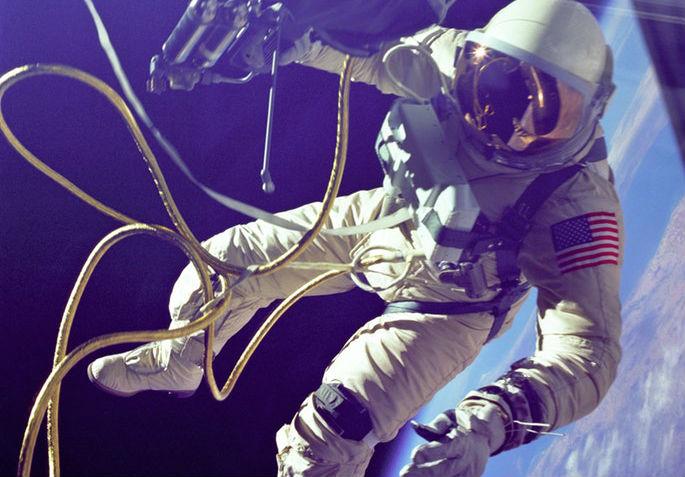Employers and Universities: Work with us?

8 unusual careers and how to make them a reality
Interested in taking your career off the beaten track? From working with volcanoes to cryptocurrency, here are eight unusual jobs you could do, with tips on how to make them a reality.
1. Space lawyer
As lesser known careers go, this one’s pretty out of this world (sorry, couldn’t resist). The name is a bit misleading: a space lawyer isn’t floating around in space. Instead, they take care of all the legal stuff from down on the ground.
Usually experts in international law, they are often faced with questions like “Who is responsible if two satellites collide?” or “Who owns the minerals on an asteroid?” With the future of space tourism on the horizon, these lawyers are now tasked with writing laws to protect both passengers and companies in the unpredictable world of outer space.
Learn more: jobs in space you might not have heard of
2. Anthropologist
When it comes to unusual job opportunities, anthropology is a fascinating route. Anthropology is the study of humans – how we evolved, how we behave, and how we communicate with each other. Anthropology is about everything that makes us human, from our everyday rituals to special ceremonies. That could mean investigating a modern religion in America, or it could be examining fossils in Africa (that’s right, fossils are involved from time to time!).
Only a small number of anthropologists work in academic settings. Most of them are actually employed in other Career Zones like business, charities, international development, medicine and healthcare. There’s even a chief anthropologist at the big tech company Intel, who helps the business understand the future of technology.
Follow this path: how to become an anthropologist
3. Nanosystems engineers
Nanosystems engineers design, build, test and improve materials on the “nanoscale” – that means things one hundred thousandth the size of the width of a human hair. And fantastical as it might sound, microscopic devices for use in medical treatment and surgery are just the sort of thing you could be working on in real life!
As well as medicine, nanotechnology has applications in computer hardware, electronics, energy, cosmetics and even space travel. As a nanosystems engineer, you will build new technologies using atoms and molecules.
Make it happen: how to become a nanosystems engineer
4. Volcanologist

If you’re looking for unusual jobs that will also let you make a positive impact on the environment, you might want to consider becoming a volcanologist. They study volcanoes and the conditions that create them. The aim is to understand how volcanoes work and predict future eruptions for the safety of people who live nearby.
Volcanologists journey to exotic locations to collect samples from active or dormant volcanoes. They map out the rock formations that make up a volcano, and explore how volcanoes erupt. To pursue this role, you will usually need an undergraduate degree in geology, geophysics or earth science. Most volcanologists also have a masters’ degree or PhD.
Go green: 10 cool environmental jobs you could do
5. Phlebotomist
Phlebotomists take blood samples from patients to help diagnose illness. They use a hypodermic needle and draw blood into a tube, and then apply a bandage to the patient. Phlebotomists then carefully label and store samples, and deliver them to the lab, and record any relevant data.
As part of their job, phlebotomists clearly explain the procedure to patients. They take care to reassure patients and put them at ease, as many can be nervous about having their blood drawn.
How to get there: the skills needed for a phlebotomy career
6. Neurologist
There are plenty more unusual job opportunities in medicine and healthcare. One is in neurologist. Neurologists diagnose and treat issues like strokes, cerebral palsy, brain tumours, epilepsy, severe headaches, blackouts and lots of other conditions – in fact, more than 5,000 neurological diseases have been discovered.
The steps to take: how to become a neurologist
7. Orthotist
Orthotists (similar to prosthetists) work with devices for people who have a physical disability. Orthotist John told us: “A typical day would involve managing a work schedule between patient assessments, paperwork and prescription management and rectification (the process of designing and modelling the orthotic devices). I also work with other prosthetists, orthotists, technicians, admin and other members of the healthcare umbrella. I would see patients daily; these range from children, elderly, severely disabled and athletes.”
What it’s really like: interview with an orthotist
8. Cryptocurrency marketing manager
Lesser known careers in marketing include cryptocurrency marketer. We spoke to Molly, who told us the best thing about this role is “having the freedom to try new things. Most businesses rely on “tried and tested” marketing methods that have proven to be effective or reliable in the past, but they need to be thinking ahead. The way we market products and services is changing — it’s no longer flyers and billboards.
“In an emerging industry like cryptocurrency, there are no “tried and tested” means of marketing so you have the freedom to explore what works (or doesn’t work!).”
The inside track: what it’s like to work in cryptocurrency
Main image andvolcano via Pexels
